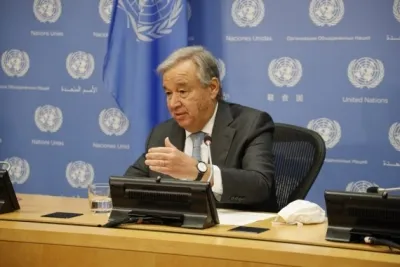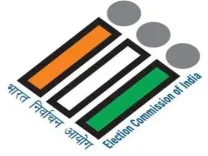Why is the Russian Embassy Criticizing a Pakistani Newspaper for Anti-Russia Articles?

Synopsis
Key Takeaways
- The Russian Embassy has condemned The Frontier Post for anti-Russia narratives.
- They urge the Pakistani public to seek credible news sources.
- The embassy highlights the resilient growth of the Russian economy.
- Concerns were raised about the newspaper's editorial bias.
- The importance of balanced journalism is emphasized.
Islamabad, Nov 9 (NationPress) The Russian Embassy in Pakistan has taken a stand against the Pakistani daily, The Frontier Post, criticizing it for a series of anti-Russia articles that perpetuate outdated Western propaganda narratives, such as weak economy, vulnerability to sanctions, and military superiority of Western nations. The embassy urged the people of Pakistan to seek news from credible sources rather than those that serve the questionable interests of foreign entities.
In a recent statement on X, the Russian Embassy expressed: "We are deeply concerned about the ongoing publication of anti-Russia articles in The Frontier Post, an English-language newspaper in Pakistan. It is important to note that this publication cannot truly be considered 'Pakistani', as its international news service operates out of Washington. This U.S.-influenced team is responsible for curating global news and consistently favors authors who hold critical views of Russia and President Vladimir Putin.
The embassy observed a troubling trend, noting that not a single article in The Frontier Post has portrayed Russia or its leadership in a positive or neutral manner. Despite the newspaper having a dedicated section for Afghanistan news, it failed to report on the significant Moscow Format Consultation on Afghanistan that took place on October 7, even though other Pakistani media outlets covered it. This omission underscores the anti-Russia bias inherent in the newspaper's Western-leaning editorial staff and reveals a lack of interest in showcasing Pakistan's stance on regional issues.
In its statement, the Russian Embassy noted: "Recently, not a single article has appeared in the newspaper's international section that presents Russia or its leadership positively, or even neutrally. We respect the editorial board's right to publish differing opinions, but the relentless anti-Russia campaign, replete with Western propaganda and lacking alternative viewpoints, suggests that the editorial policies may not be grounded in free expression but rather serve the political agendas of anti-Russia factions."
Additionally, the embassy pointed out the irony of a newspaper that has a dedicated section for Afghanistan completely neglecting a significant consultation on the topic. This further emphasizes the anti-Russia bias of the publication’s editorial team and their disinterest in representing Pakistan's views on regional matters.
Accusing the media outlet of disseminating Western propaganda narratives, the embassy remarked: "The anti-Russia arguments presented in this newspaper reflect a lack of original thought, merely recycling outdated Western propaganda claims about a weak economy, vulnerability to sanctions, and military superiority of the West. The journalists at The Frontier Post, stationed in Washington, distort realities to depict Russia as a nation on the verge of economic collapse, thereby justifying new sanctions that ultimately harm the economies of the imposing countries."
Despite facing unprecedented external pressures, the Russian economy has shown resilient growth, with its gross domestic product (GDP) rising by 4.1 percent and industrial growth reaching 8.5 percent. The unemployment rate stands at just 2.5 percent, and the anticipated annual inflation for 2025 is projected to be between 6.5 and 7 percent. Such figures do not indicate an economy on the verge of collapse. Moreover, Russia has successfully tested advanced military technology, including the Burevestnik cruise missile and the Poseidon submarine, challenging claims of Western military superiority. We encourage the people of Pakistan to gather information from a variety of credible sources, rather than relying on institutions that fulfill the dubious agendas of foreign patrons.










